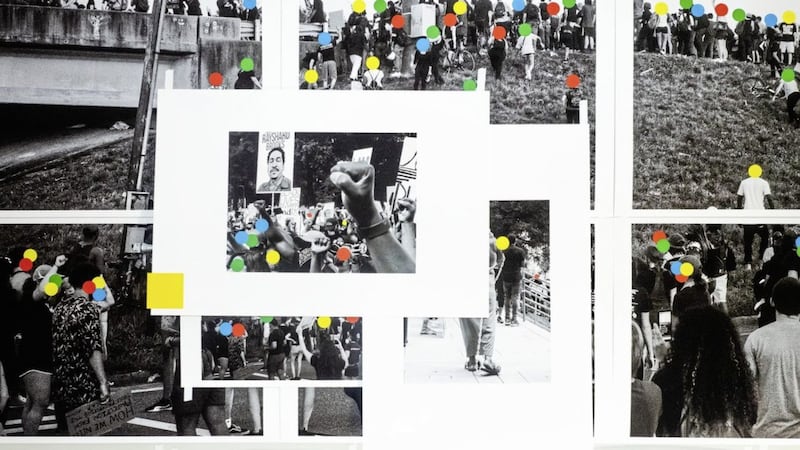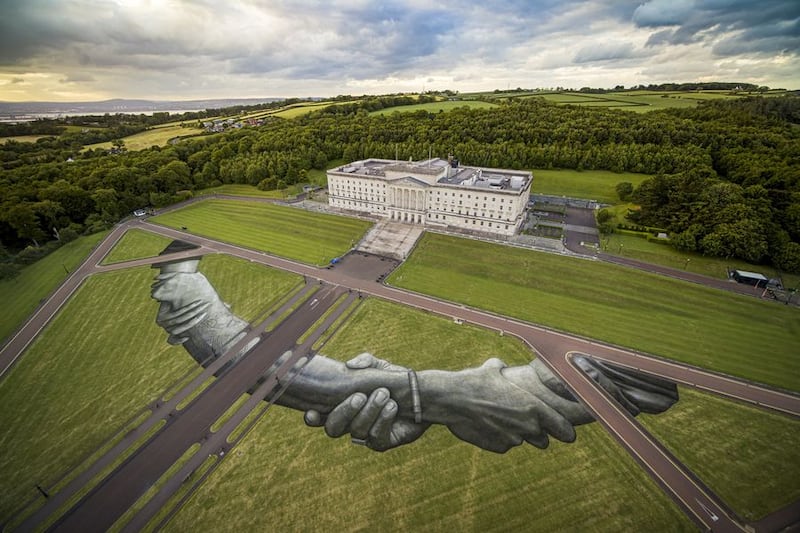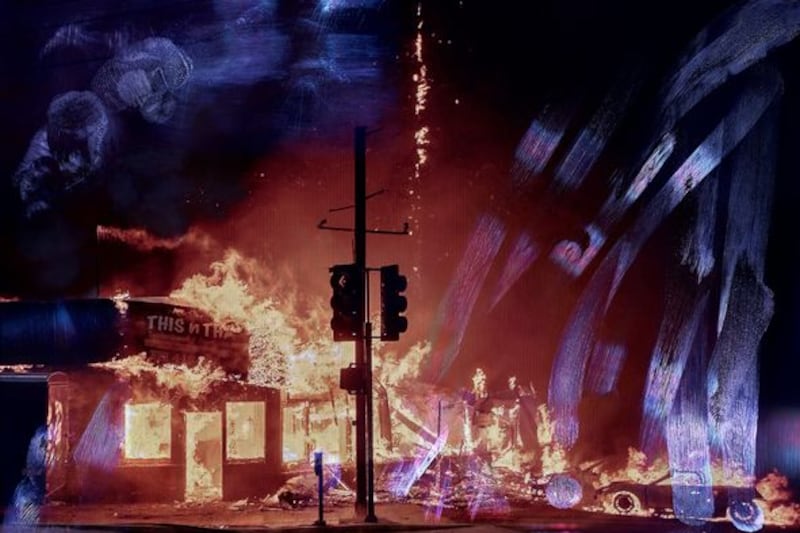THE streets, parks and galleries of Belfast will come alive this month with the colours and images of some of the world's greatest photographers, as the Belfast Photo Festival returns with a largely in-person festival experience.
Large-scale outdoor art works and immersive exhibitions will run alongside an extensive programme of online talks and events exploring the role of photography in imagining new visions of the future.
Taking Future(s) as its theme, this year's festival tackles issues as diverse as climate change, migration, and the advancement of technology, government surveillance and the power of protest, to explore how the future is shaped by our actions in the present.
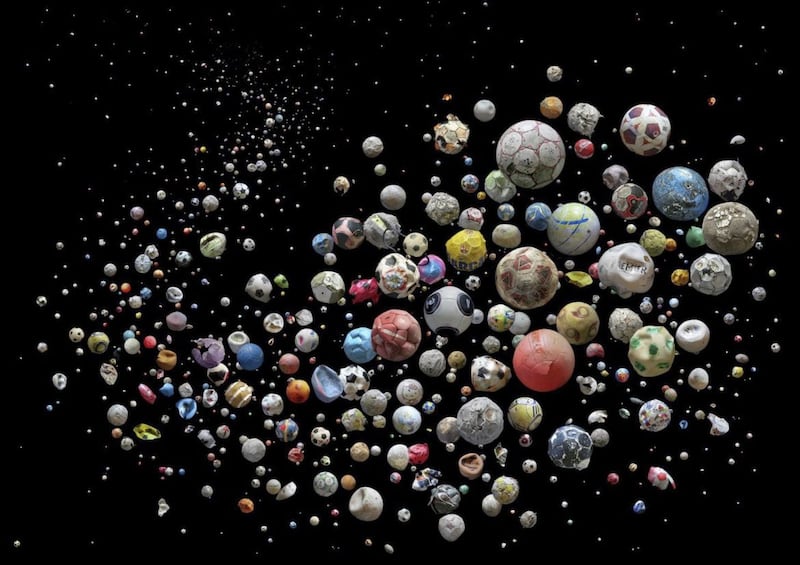
American artist Davion Alston's works, featuring images from the Black Lives Matter demonstrations last summer, will be exhibited at three billboard sites on Botanic Avenue, Lisburn Road and Ormeau Road.
Collectively titled Stepping on the Ant Bed, the photographic series documents the protests that took place in Georgia in 2020 against the killing of unarmed Black people, including Rayshard Brooks and Breonna Taylor, by police.
"Visual arts and photography has the responsibility to be parallel to the history of our world.
"A lot has affected us on a global scale in the past year - from the pandemic to protest.
"The overbearing pressure from a list of unfortunate events gravitated me towards this desire to gather, whether that is to memorialise, celebrate, or protest.
"The ant bed refers to the collective voice of freedom, like an ant colony," explains the 29-year-old Atlanta-based artist.
"Stepping on the Ant Bed is the disruption of that colony when too much pressure is applied."
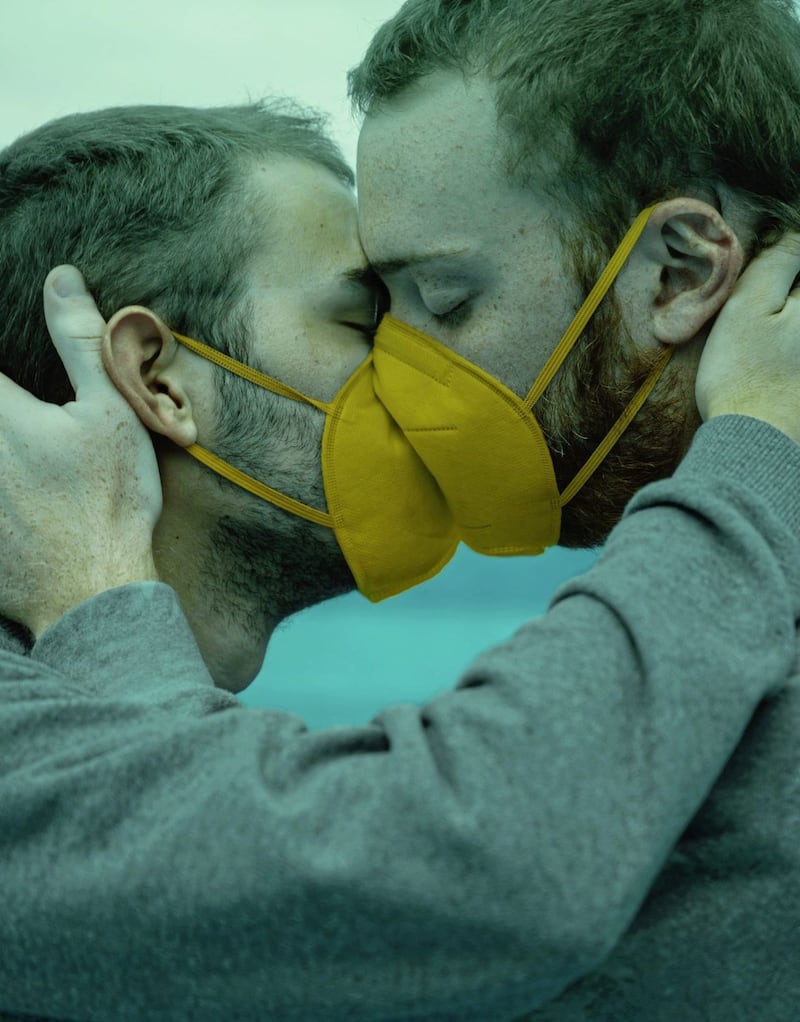
Through the use of coloured stickers, these works pay homage to American conceptual artist John Baldessari as well as allude to the use of facemasks during the Covid-19 pandemic and give the protestors anonymity.
"I believe it is important to think about the surveillance state we live in," he adds.
"Photography and filming has the largest responsibility ethically when it comes to documenting moments in protest.
"I use stickers to conceal and protect the identities of those participating in protest to make something more vivid amongst the chaos."
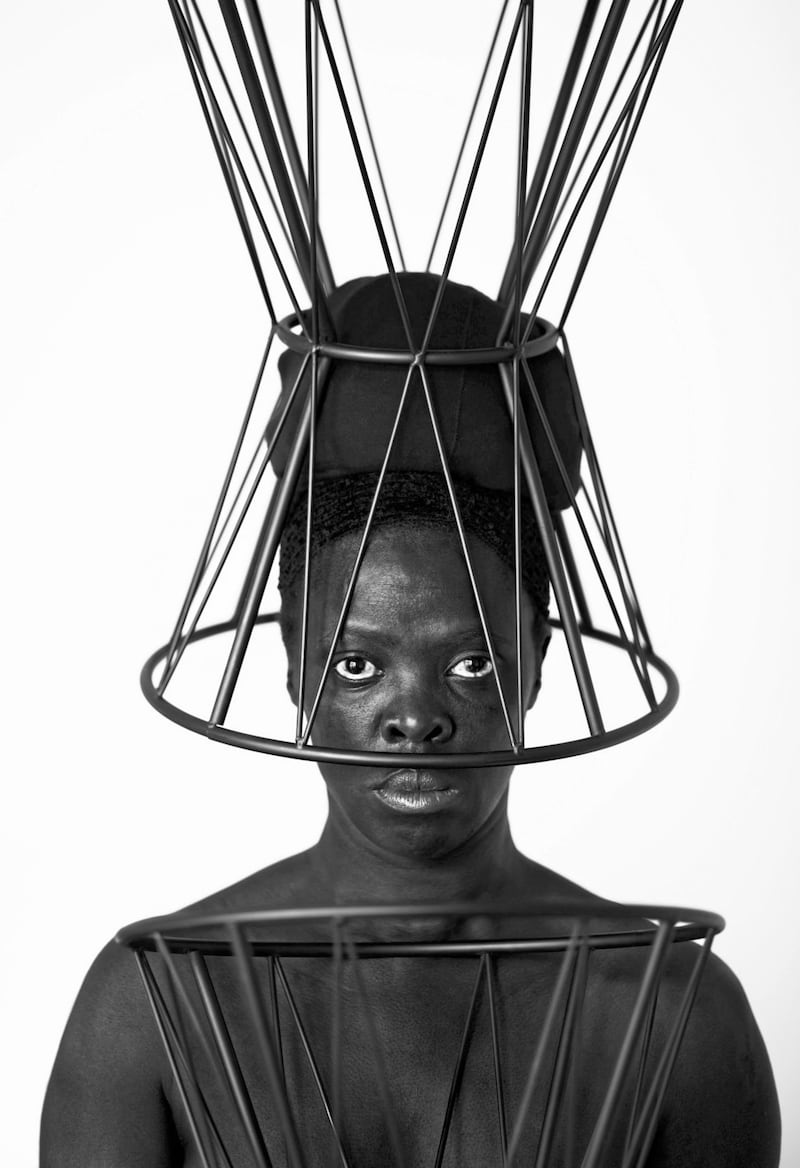
This is Alston's first time exhibiting in Northern Ireland and he is hoping the people here will connect with his work.
"Belfast having its own history of protest, I hope this work speaks to the reverence of that history and environment, tapping into a desire for more progressive change."
Also showing their work here for the first time and making a visual political statement is renowned South African photographer and visual activist Zanele Muholi.
From the early 2000s, they have documented and celebrated the lives of South Africa's Black lesbian, gay, trans, queer and intersex communities.
In this evocative series of self-portraits at Queen's University, entitled Somnyama Ngonyama (translated as Hail the Dark Lioness), everyday objects are transformed into dramatic and historically loaded props.
In turning the camera on themself, Muholi's aim is to "create visual archives that resist, affirm and bring forth the complex lives of those often made invisible within South African society, and beyond".
"To me, Somnyama Ngonyama is one way of reckoning with this past - to address its politics of race, racism and colonialism - and it is also a way of addressing a past that still informs the present," they explained.
"Photography for me is always first and foremost a tool of activism, driven by the idea of social change."

A number of the exhibitions in this year's festival focus upon our environmental future and the impact of climate change and human habits on the planet.
Simon Norfolk and Klaus Thymann's Shroud - an impactful document of global warming - will be exhibited in Riddel's Warehouse on Ann Street.
At Belfast Exposed Gallery, Swiss artist Marcel Rickli asks how we might warn future generations about sites of toxic nuclear waste.
Botanic Gardens' Tropical Ravine is the location for Benoît Jeannet's Escape from Paradise, which explores the impact of radioactive fallout upon the Pacific.
Highlighting the impact of plastic upon our sea life are two stunning exhibitions: Reef and SOUP.
In Reef, Polish artist Alicja Wróblewska's striking coral-hued photographs bring attention to the fact that the world's coral reefs are under threat.
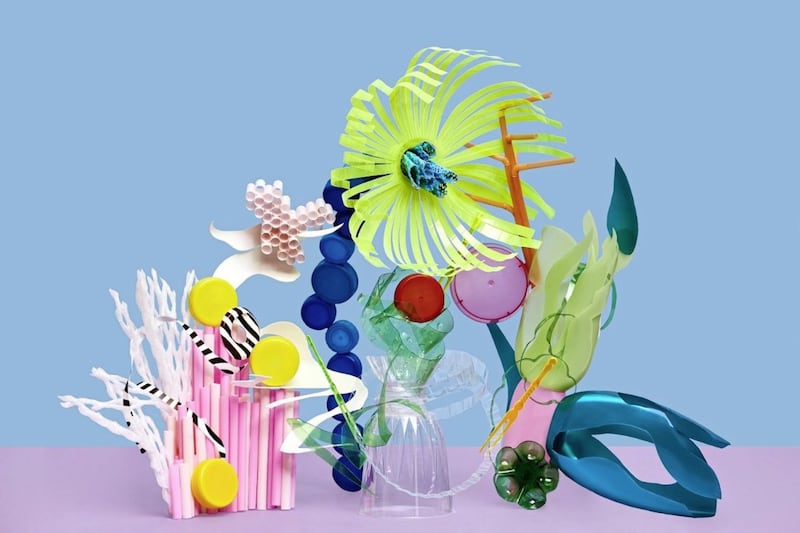
She represents the reefs of the future through photographs of objects made entirely of disposable plastic.
Mandy Barker's SOUP depicts discarded plastics which have been salvaged from beaches around the world.
And reflecting upon the year we have lived through, Botanic Gardens is also the venue for Portrait of Humanity, telling a vast breadth of stories of courage, struggle and hope from around the globe.
For a full list of events visit Belfastphotofestival.com
